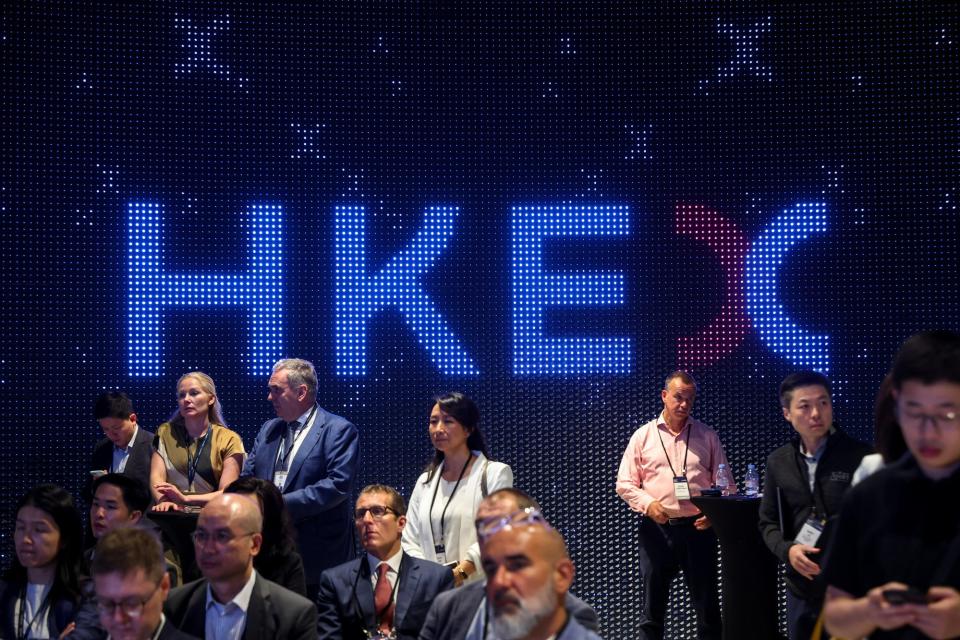Chinese government entities remain a pillar of Hong Kong IPOs, but foreign investors have not lost interest
Local government entities in mainland China continued to play a significant role in Hong Kong's initial public offerings (IPOs) in the second quarter of the year, but foreign institutional buyers may be making a comeback amid improved market sentiment.
Provincial and municipal governments, councils and investment vehicles owned by local authorities took part in a third of the 18 IPO deals in the second quarter as cornerstone investors with lock-up conditions, according to data compiled by the Post.
The figures illustrate the broader trend of more state-linked support for new offerings since last year in Asia's third-largest stock market. However, data shows that the percentages of shares that government-related entities are taking has fallen.
Do you have questions about the biggest topics and trends from around the world? Get the answers with SCMP Knowledge, our new platform of curated content with explainers, FAQs, analyses and infographics brought to you by our award-winning team.
In the three months to June, at least nine government-related bodies took up an average of 24 per cent of the shares on offer. In the previous 15 months, 43 entities accounted for around 33 per cent of the IPO shares, with one local government body taking 79 per cent of the shares in one deal, leading to concerns by investors that too much state-linked involvement could distort pricing and weaken market discipline.
Tianju Dihe (Suzhou) Technology, a provider of application programming interface services that raised HK$401.5 million (US$51 million), received HK$172 million, or 43 per cent of the offered shares, from entities ultimately owned by Suzhou Industrial Park Administrative Committee, and Xuzhou Economic and Technology Development Zone Management Committee. On its first trading day of June 28, the stock slid 27.8 per cent from its IPO price.
While local Chinese government money has remained a significant pillar of Hong Kong's IPO market, international investors have been watching, and some have started taking part in deals again, according to market participants.
"Although foreign investors, especially long-only funds, were cautious in taking part in IPOs during the last few years, Hong Kong IPOs were never off their watch lists," said Charles Lin, CEO of financial services company GF Holdings (Hong Kong). "Some top global asset managers started to overweight China stocks, and some began to bid on Hong Kong IPOs again."
Lin added that companies with "solid fundamentals at reasonable valuations" will attract more foreign funds.

The logo of Hong Kong Exchanges and Clearing is displayed at the Hong Kong stock exchange, June 5, 2024. Photo: Edmond So alt=The logo of Hong Kong Exchanges and Clearing is displayed at the Hong Kong stock exchange, June 5, 2024. Photo: Edmond So>
A poster child of Hong Kong's IPO market in the second quarter was QuantumPharm, a Shenzhen-based AI-powered pharmaceuticals researcher also known as XtalPi. The company, the first listing under the Hong Kong stock exchange's Chapter 18C regime that allows tech firms in strategic fields to raise capital even before they meet revenue and profit targets, drew a diverse base of cornerstone investors who subscribed to HK$338 million worth of shares.
They consist of four individuals, including Hong Kong real estate mogul Peter Lee Ka-kit and Massachusetts Institute of Technology chemistry professor Bradley Pentelute, and private funds from TruMed Investment Management, Ocean Cedar Asset Management and Ginkgo Capital. Hong Kong-listed Biocytogen Pharmaceuticals (Beijing) also funded the HK$989 million IPO.
It was considered the first market-driven IPO in Hong Kong in recent times, as many previous deals consisted of money from "family and friends", said analysts. The company's shares surged 10 per cent on its first trading day on June 13.
"The market has observed a slow but steady return of quality institutional investors to the Hong Kong IPO market," said Meng Ding, a partner at law firm Sidley Austin, referring to QuantumPharm's IPO, which he said hopefully would help usher in more hard-tech listings in the city.

Hong Kong is Asia's third largest stock market. Photo: Xinhua alt=Hong Kong is Asia's third largest stock market. Photo: Xinhua>
"We believe Hong Kong is regaining its position as a global hub of finance, and the deeply-undervalued stocks are good timing for global investors," said GF's Lin.
With the Hang Seng Index rebounding around 20 per cent from its January lows, and expectations that the US Federal Reserve will cut interest rates later this year, IPO sentiment in Hong Kong has improved, according to market observers. These factors should bolster retail and international investor interest, they added.
Chinese provincial and municipal government-related entities will still remain relevant to Hong Kong's IPO market, said Lin, as they continue to support Chinese companies in their jurisdiction by investing in these businesses to create local jobs.
"This win-win cooperation brings spillover effects to the overall economy too, and we believe investments from local government entities will continue to be a pillar of Hong Kong IPOs in the future," Lin said.
This article originally appeared in the South China Morning Post (SCMP), the most authoritative voice reporting on China and Asia for more than a century. For more SCMP stories, please explore the SCMP app or visit the SCMP's Facebook and Twitter pages. Copyright © 2024 South China Morning Post Publishers Ltd. All rights reserved.
Copyright (c) 2024. South China Morning Post Publishers Ltd. All rights reserved.

 Yahoo Finance
Yahoo Finance 